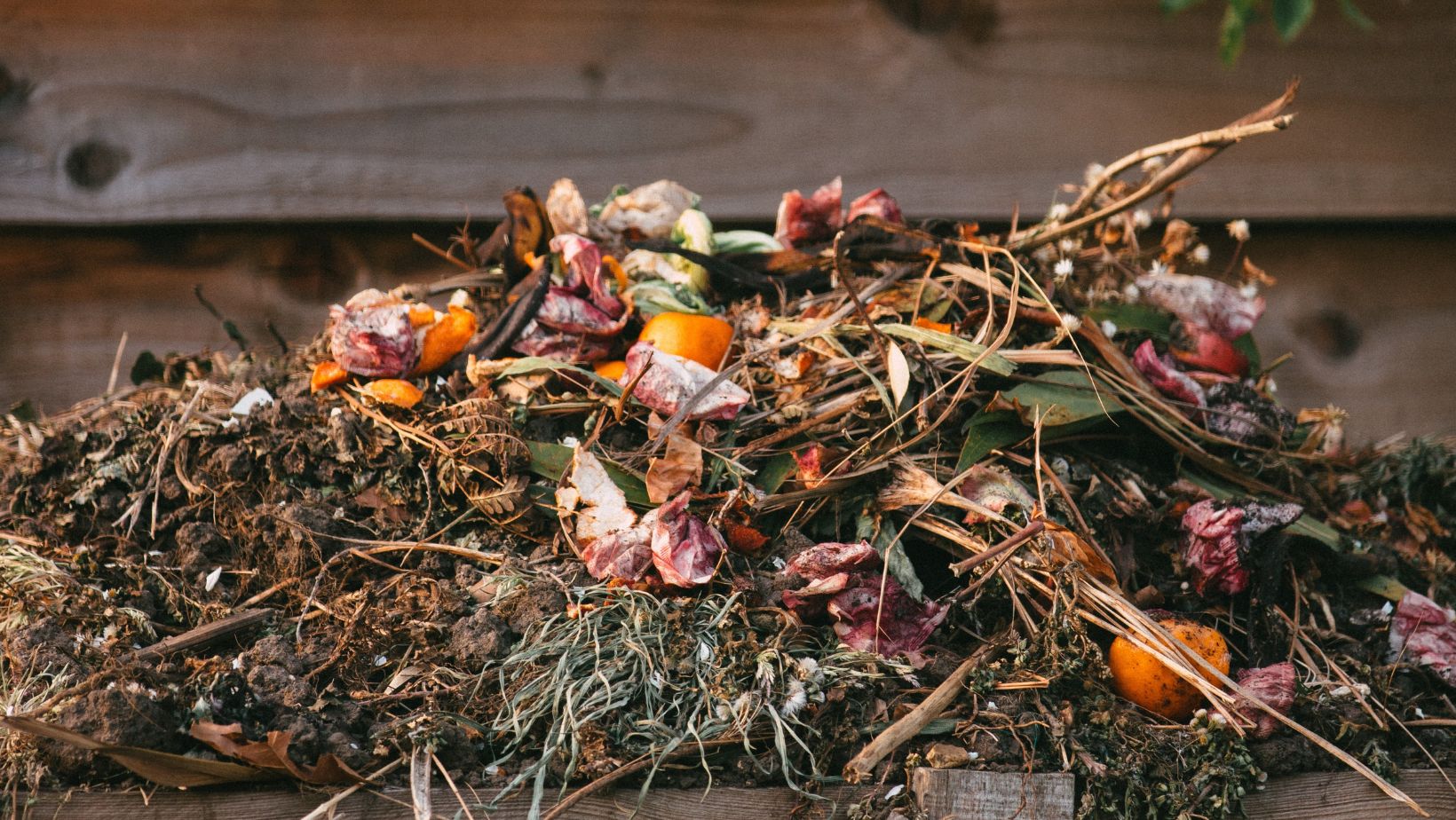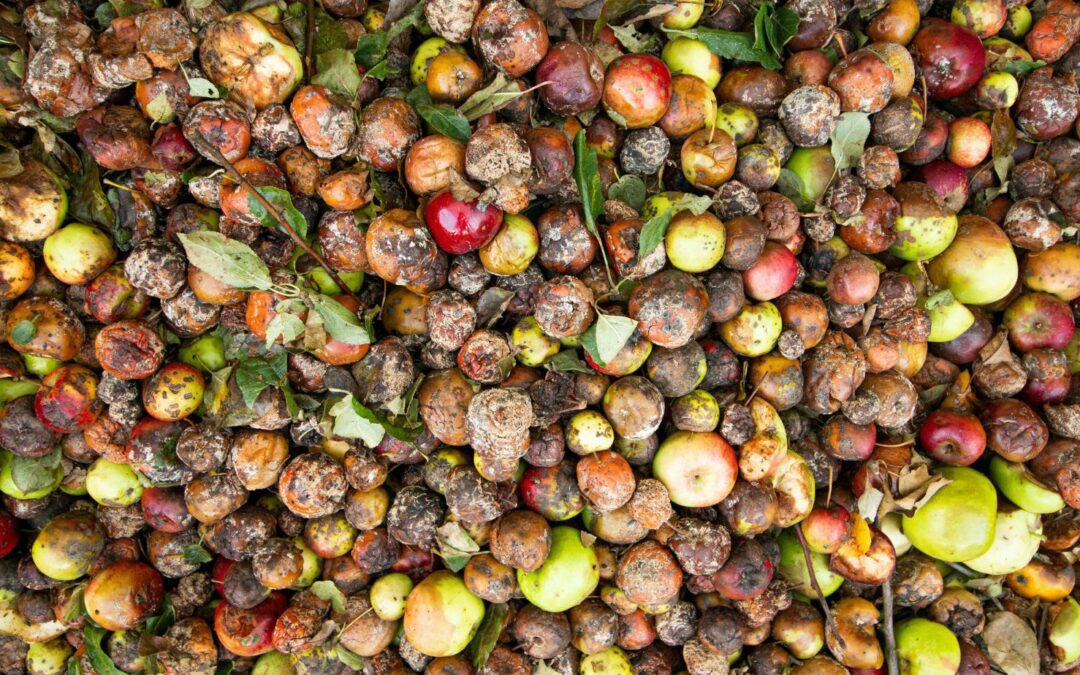Have you heard the news?! Auckland Council is rolling out food waste bins as we speak!
Green waste and food scraps that end up in landfills produce methane and CO2, both of which are harmful greenhouse gases that contribute to global warming. As if that wasn’t bad enough, when we send our food waste to the landfill, we discard valuable nutrients and miss out on the opportunity to turn this waste into biofertiliser or biogas. At Pink Bins, we’re big fans of recycling and reusing waste that would otherwise be sent to the landfill, so we’re stoked to see another option for Aucklanders’ green waste.
It might not be as fun to talk about as whatever your mate, Todd got up to last weekend on the turps, but food waste poses a serious risk to our environment when it’s not disposed of correctly, so it’s bloody brilliant to see the council offering an easy solution to responsibly dispose of it.
How To Solve Our Food Waste Problem
Auckland City Council is aiming to be zero waste by 2040. This is a massive goal and an awesome win for the environment! The introduction of food scrap bins across the city is an important step towards reaching this zero waste goal.
Unfortunately, it’s not as simple to fix as giving everyone a green bin, but there are plenty of things each of us can do to solve our food waste problem and work towards living zero waste.
Food scrap bins
The council’s food scrap bins will mean that your food scraps can be easily collected and transported to the new Ecogas Reporoa Organics Processing Facility. Once your food waste is there, using technology already in use overseas, your scraps can be turned into renewable energy, fertiliser, or the CO2 it produced can be captured and used in greenhouses to grow more yummy kai!
If you haven’t got your food waste bin delivered yet, you can check the council website to see when it will arrive. They’ve also got heaps of great info about how to use your food waste bin, and how much it costs.

Minimise food waste
The best way to deal with any kind of waste is to prevent it from becoming waste in the first place! Here are a few quick ways you could minimise your own food waste:
-
Say “No, thanks!” to that larger portion of food when you go for takeaways, if you’re not hungry enough to finish it,
-
Make a meal plan so that you know exactly what you’ll actually use when you do your weekly shop,
-
Don’t stock up on perishable food items before you go away for the weekend,
-
Invest in quality containers to store food in so it stays fresher for longer,
-
Don’t be afraid to pop leftovers in the freezer to enjoy at a later date,
-
Support businesses and initiatives that work to reduce food waste, or find a purpose for it,
-
And, consider ways you can reuse your household wastage, like starting a compost heap!
Compost
We’ve said it before and we’ll say it again – we should all be composting! The council still recommends at-home composting for food waste (except meat and dairy products which can get smelly and attract unwanted visitors).
We realise that composting at home might not be a practical option for some people though. And that’s okay! At least now you have the option of using your food waste bins, if you have limited time or space.
Composting can be good, (not so) clean fun! If you’d like to give it a go, but you’re not sure where to begin to start your own at-home compost pile, we’ve got some great tips to turn your food scraps and green waste into nutrient-rich compost for your garden or potted plants. If you have limited space, or you don’t produce enough scraps to make a great, big, heap there are some great benchtop composters out there which make the process super easy.

Dispose of garden waste responsibly
Just like food waste, garden waste poses a threat to our environment, if it is not disposed of correctly. So, if you’ve been trimming your bushes recently (get your mind out of the gutter, we can hear you sniggering!), or you’ve got a mountain of green waste from a big gardening session, your food scraps bin probably won’t cut the mustard. If you end up with more food scraps, or green waste than you can compost, or fit in your bin, it could be time to bring in the big guns (it’s us, we’re the big guns)!
We’ve got skip bins in a range of sizes to best suit your needs. When you hire a general waste Pink Bin, or a Pink Bag, we sort your waste for you and make sure your green waste gets disposed of correctly, anything that can be recycled is, and only the waste that can’t is sent to landfill. So if you’ve got a big load of mixed rubbish, but you’d still like to do the right thing with your green waste, Pink Bins is an easy option.
We also offer green waste-only skips, which we can do a bit cheaper for you *wink wink nudge nudge*. So, if you’d like a green waste-only skip bin, just give us a buzz and we’ll sort it out for you – easy as!
The future of food waste
Reducing food waste is a complex issue that requires a combination of individual and collective efforts. Council bins for meat and dairy products are a great step in the right direction, but it’s still important to compost at home, if you can, reduce food waste where you can, and support businesses and initiatives that help to reduce the amount of food waste that is sent to the landfill.
The food scrap bins are pretty small though…
Whoops! We said it!
So, if you end up with more food or organic waste than you can fit in your new green, food scraps bin – give Pink Bins a shout, we’ll help you get rid of it, and we’ll make sure it gets sent to a good place, not the landfill!

